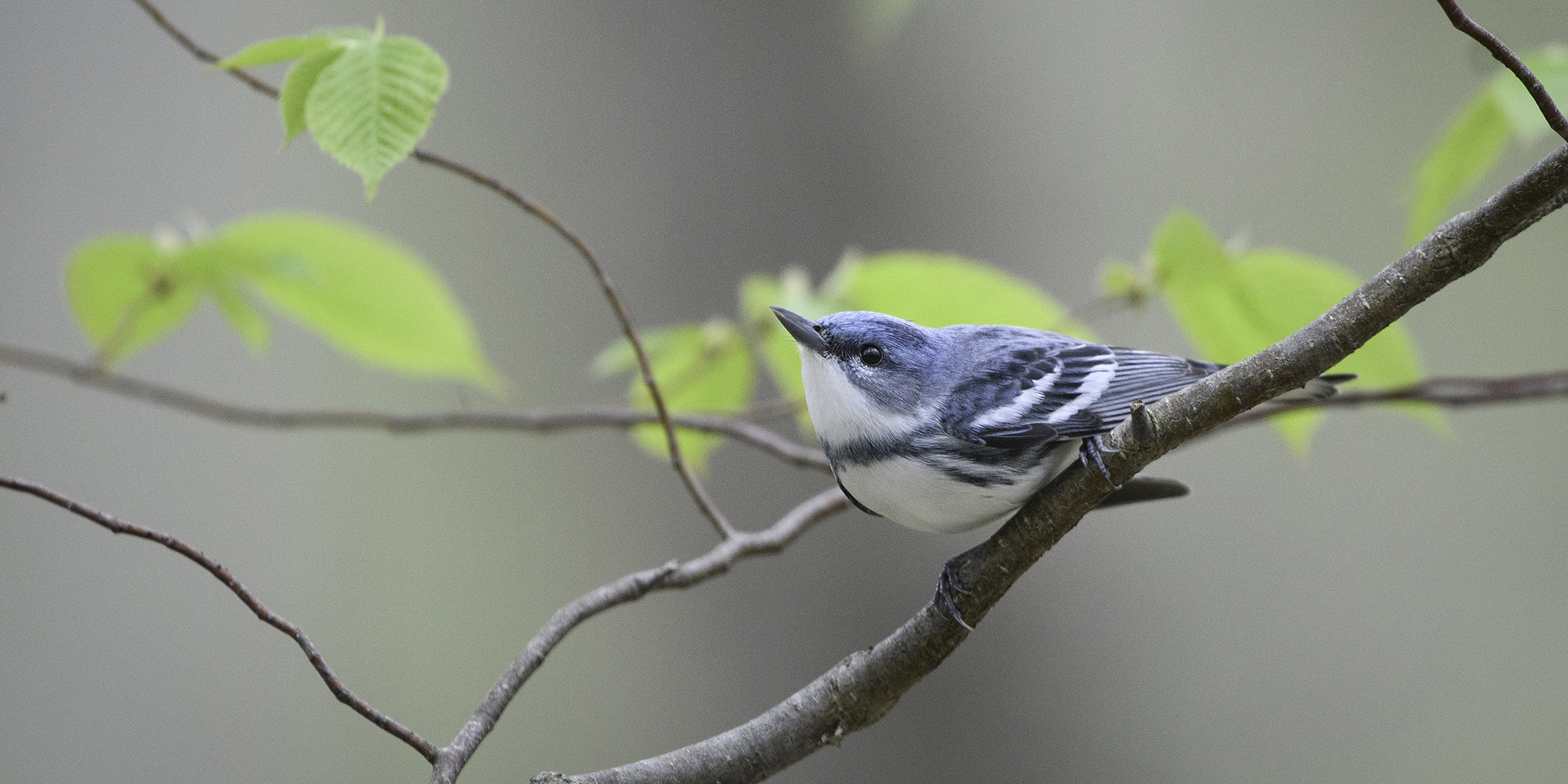
Recent studies suggest that North America has lost 2.9 billion birds over the last 50 years, including 17% percent of birds that rely on eastern forests. One such species is the neotropical migrant Cerulean Warbler, which has exhibited precipitous declines above 70% and is one of three priority species for Audubon Mid-Atlantic’s Healthy Forest program.
Cerulean Warblers require specific habitat features unique to mature forests. While much of the forests in the Mid-Atlantic region are more than 100 years old, the widespread unsustainable forest practice of “high grading”—in which the largest, most valuable trees are cut down for saw logs—has left many mature forests lacking quality large-diameter oaks, which Cerulean Warblers rely upon for nesting.
Fortunately, we can profoundly impact Cerulean Warbler habitat through active forest management. The 2022 State of the Birds reported that Cerulean declines are leveling off across the region due to the efforts of programs such as the Natural Resources Conservation Service (NRCS) Working Lands for Wildlife and the Appalachian Mountains Joint Venture (AMJV) partnerships (of which Audubon is a member).
Successful bird conservation must focus on all life-cycle phases, from over-wintering sites to migration to breeding habitat. Audubon Mid-Atlantic has begun an environmental improvement project at DeHart Reservoir in Dauphin County that will restore approximately 80 acres of Cerulean Warbler breeding habitat on land managed by Capital Region Water along the Kittatinny Ridge. The project complements the Cove Mountain Migratory Stopover Habitat work funded by the Donald B. and Dorothy L. Stabler Foundation in 2022.
Between the migratory habitat work and the current breeding habitat work, Audubon Mid-Atlantic is working with local partners in the Harrisburg area to create easily accessible demonstration projects that showcase how habitat conservation, recreation, and key forest services such as timber and improved water quality can support one another.